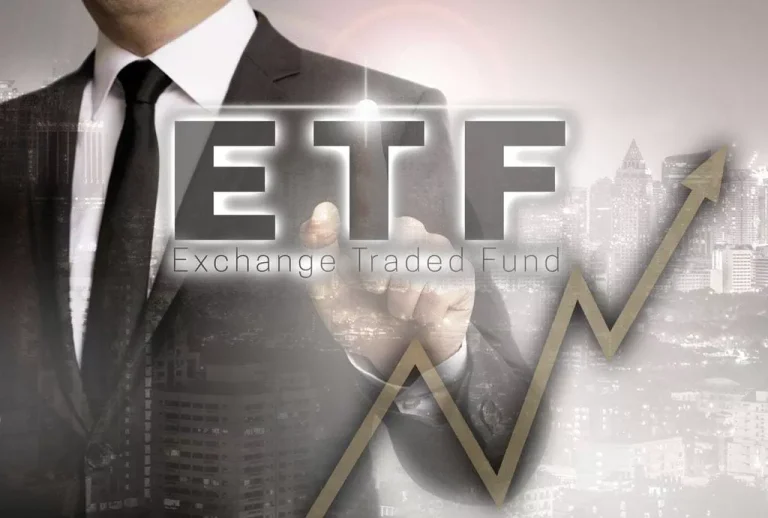The primary objective of prop trading is to generate earnings for the establishment using the capital allocated by the firm for buying and selling. In this article, we will delve into the internal workings of prop buying and selling corporations, discover the role of prop merchants in monetary markets, and focus on the challenges and alternatives facing these companies in at present’s market. Under the Volcker Rule, banks are generally prohibited from participating in proprietary buying and selling. This means they are restricted from making speculative bets in monetary markets utilizing their own funds. These restrictions have been put in place to stop financial institutions from partaking in excessively dangerous actions that their clients and depositors don’t instantly benefit from.
Proprietary buying and selling refers to a monetary firm or industrial financial institution that invests for direct market acquire somewhat than earning commission dollars by buying and selling on behalf of clients. Also generally identified as “prop trading,” this type of buying and selling activity occurs when a financial firm chooses to revenue from market activities quite than thin-margin commissions obtained by way of consumer buying and selling exercise. Proprietary trading may contain the buying and selling of shares, bonds, commodities, currencies, or other devices.
What’s Proprietary Trading?
This helps prop firms establish purchasers with one of the best potential for buying and selling in real markets. An fascinating different to classic proprietary buying and selling is the current provide of prop buying and selling companies, together with FTMO. These corporations offer potential traders the chance to search out out whether or not they have what it takes to turn out to be an actual dealer, but without a variety of the restrictions we mentioned above. In terms of compensation, prop merchants typically obtain a proportion of the profits they generate for the firm, whereas traditional investment companies pay their workers a salary and bonuses based mostly on performance.
Firms go into proprietary buying and selling with the belief that they have a aggressive benefit and entry to priceless information that may help them reap huge income. Proprietary traders use their firm’s own money to spend money on the monetary markets, and they retain 100% of the returns generated. Prop traders make all or most of their earnings from splitting income they generate in monetary markets with the prop firm that provides them with capital. Currently, there is a new fashionable way of trading spreading throughout the monetary markets referred to as prop buying and selling.
Investment corporations that use proprietary trading strategies will not and can’t provide cash for buying and selling to just anybody. Since the financial market is kind of closely regulated at present, institution often impose very strict requirements on workers who execute trades on their behalf. Such employees typically need to cross checks to acquire sure certifications, have to possess higher training how does prop trading work or undertake psychology testing. Without fulfilling these necessities, which are not easy to cross and should even price a considerable sum of money, a potential dealer can’t apply as a dealer in a proprietary trading agency. In addition to offering liquidity, prop traders additionally use their experience and data of the markets to identify worthwhile opportunities.

This can embrace trading competitions where traders will go head-to-head and compete to see who can generate the most revenue from buying and selling over a specified period of time. There is a sequence which most prop corporations observe to have the ability to establish themselves and turn out to be profitable. Prop outlets can help merchants identify shares on a threshold record for short selling, access liquidity in darkish swimming pools and entry shopping for power to execute on more alternatives. As unbiased entities, prop retailers aren’t subjected to the exact regulatory requirements as broker-dealers. In latest years, the number of those wishing to commerce on monetary markets has elevated a quantity of occasions. Some lose their first deposits, and others want more funds to start working effectively.
Tips On How To Find The Right Prop Firm For You
Although prop trading is considered a high-risk form of trading, it’s frequently some of the worthwhile operations for industrial or funding banks. The 2008 financial crisis increased the scrutiny prop trading companies and hedge funds confronted, as they had been perceived to have performed a job in causing the disaster. These concerns led to the Volcker Rule being launched, imposing strict limits on proprietary buying and selling actions to manage their operations. The need for this rule is highlighted by the battle of curiosity between the firm’s proprietary buying and selling and its obligations to shoppers. It’s value noting that particular person buyers don’t instantly benefit from prop trading, as this apply focuses on trading for the firm’s personal profit rather than executing trades on behalf of shoppers.

These individuals play a crucial function in making certain the agency’s buying and selling actions are according to laws and that dangers are properly managed. Numerous futures prop trading companies provide compensation buildings which would possibly be tied to performance. In different words, traders are remunerated based on their buying and selling results, regularly via profit-sharing arrangements. Such a system serves as a motivation for traders to purpose for consistent profitability, driving them to carry out at their greatest. By engaging in proprietary trading, the financial institution can absolutely capitalise on the advantages of the trades. This method permits the bank to take advantage of beneficial market circumstances and utilise its resources to generate profits.
Day traders with lower than $25,000 don’t have to worry about minimal fairness requirements and others have access to extra capital than they might with a retail account. Since you’re a buyer of the agency and also you’re utilizing your own cash rather than that of a firm, there’s far more flexibility on what trading activity you can undertake in addition to how and when you can do it. Nonetheless, it’s essential to recognise that this strategy carries a high degree of risk. News occasions can be unstable and sudden, requiring traders to utilise this method to be agile in responding to market fluctuations. Proprietary merchants benefit from a high level of autonomy, allowing them to navigate the trading landscape on their very own phrases. Unlike traditional merchants, they are not confined by mounted schedules or stringent regulations, enabling them to implement trades primarily based on their unique approaches, evaluation, and market perspectives.
In the United States, this is ready to contain registering with the Securities and Exchange Commission (SEC) and the Financial Industry Regulatory Authority (FINRA). These regulatory our bodies have strict requirements for prop trading companies, together with minimum capital requirements and compliance requirements. If you are excited https://www.xcritical.com/ about beginning your individual prop buying and selling agency, there are several key steps and concerns to bear in mind. First and foremost, you will need to have a major quantity of capital to fund your trading actions.
Hedge Fund Vs Prop Buying And Selling
Due to the inherent uncertainty surrounding the merger’s completion, the goal company’s inventory value often trades under the acquisition worth. Proprietary trading firms improve market liquidity and effectivity inside the financial ecosystem. These companies actively commerce a various vary of monetary devices, such as equities, derivatives, and Forex, appearing as intermediaries that contribute to stabilising asset prices.

This can contain analyzing market trends, information events, and economic knowledge to make knowledgeable buying and selling selections. As a result, prop traders are sometimes seen as key gamers in the monetary markets and can have a major influence on market movements. High-frequency buying and selling (HFT) companies are identified for using complex algorithms and know-how to execute many trades at high speeds. In distinction, different prop buying and selling firms may concentrate on a broader range of trading strategies and rely less on high-frequency buying and selling strategies. High-frequency buying and selling (HFT) companies are specialised trading firms that utilise automated buying and selling algorithms to execute trades at extraordinarily high speeds. These corporations rely on advanced know-how and complicated algorithms to analyse market knowledge and execute trades inside fractions of a second.
The Risks Associated With Trading With A Prop Firm
This perception isn’t restricted to people in the finance business; it is also related for anybody interested by how prop trading impacts the general market. By grasping the intricacies of this apply, one can achieve a deeper data of the dynamics at play within the monetary world and the implications of prop trading on market stability and efficiency. Proprietary trading desks regularly utilise quantitative models and algorithms to detect buying and selling alternatives. These methods depend on historic knowledge, mathematical models, and statistical analysis to generate buying and selling signals. Quantitative methods can vary from basic statistical fashions to intricate machine studying algorithms.

This desk is liable for a portion of the financial establishment’s revenues, unrelated to client work whereas acting autonomously. Prop companies will normally specialise in a selected type of market, that means they’ll construct their data and experience and turn out to be better at trading in specific areas. Most Electronic Communication Networks (ECNs) present rebates to traders who add liquidity they usually additionally charge higher fees to merchants that take away liquidity from the market. Retail brokers typically don’t pass on these rebates to day traders since they route orders to the bottom value locations.
Now that we’ve answered the query of how prop corporations may help traders get higher, let’s get to some more attention-grabbing particulars. Discover the fundamentals of market liquidity, major forex pairs’ liquidity ranges, elements affecting liquidity, liquidity providers’ position, dangers of low liquidity, and tailored buying and selling strategies. Another significant benefit is the flexibility of these institutions to build up a listing of securities.
In the realm of foreign money strategies, these funds usually identify opportunities by assessing the relative energy of 1 forex against one other. Proprietary traders working independently usually enjoy the autonomy to select their most well-liked buying and selling approaches and execute trades swiftly. Nonetheless, they must also navigate the complexities of threat administration and capital preservation to sustain their buying and selling operations successfully.
Live trading accounts allow merchants to function in a real buying and selling surroundings that might be subject to slippage or execution. It may not be nice for traders, but it’s the real-life conditions that can assist traders perceive how markets work and the way they’ll shield themselves from losses. Furthermore, merchants learn to handle emotions, corresponding to fear and greed, which is a difficult talent to master when there is no real money at stake. They may also feel the urge to take bigger risks in a risk-free environment, which in the long run is counterproductive. Overall, Axi’s live trading accounts assist ensure a transparent and structured buying and selling expertise. It can additionally be a greater choice for corporations to go with prop corporations and traders over unbiased merchants, as prop traders don’t have entry to or control of any of the clients accounts which can make it safer.
